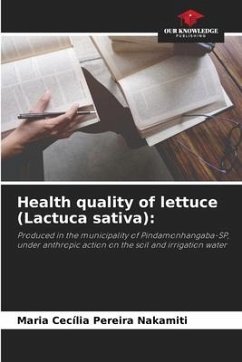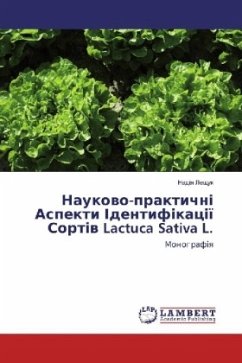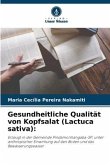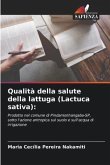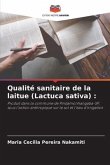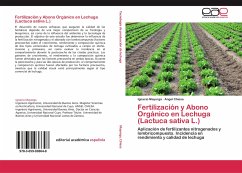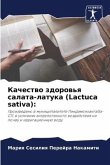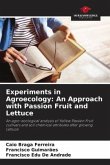The consumption of fresh vegetables is an important means of transmission of various pathogens, due to the possibility of human infection through fecal/oral route, emphasizing that the quality of water used in irrigation can represent an important vehicle of contamination of this food. This study aimed to evaluate the bacteriological and parasitological parameters and the environmental conditions of lettuce cultivation in 14 vegetable gardens in the municipality of Pindamonhangaba-SP. The bacteriological analyses were performed in partnership with the Adolfo Lutz Institute of Taubaté. The analytical tests consisted in the research of Salmonella sp, evaluation of total and thermotolerant coliforms by the Most Probable Number (MPN) technique.
Bitte wählen Sie Ihr Anliegen aus.
Rechnungen
Retourenschein anfordern
Bestellstatus
Storno

